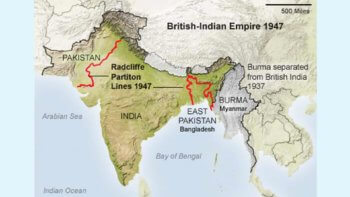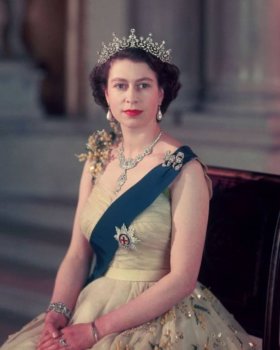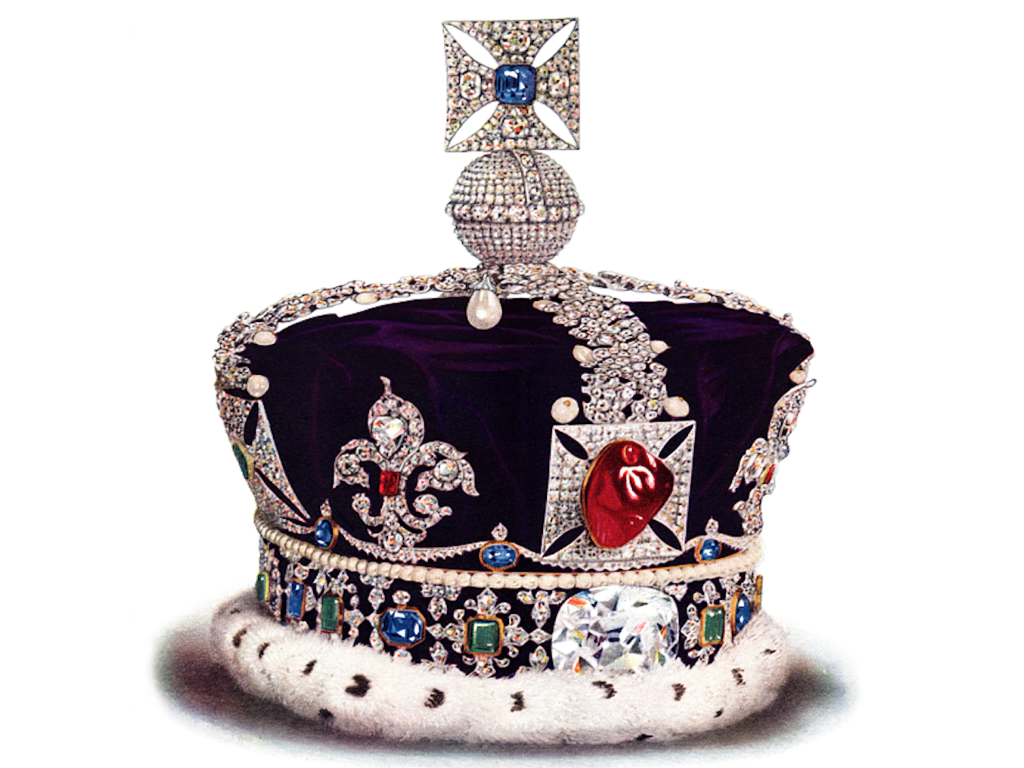Her Majesty The Queen is marking her 70th Anniversary as the head of the British monarchy. An historical moment where the global eyes will turn to Buckingham Palace for a series of celebrations for the next three days. As we recognize this momentous occasion for the Queen, we can’t ignore the fact that this particular anniversary is taking place in a very different world. Much different than what it was even 3 years ago. The global charge of changing the common (white) narrative, (hugely attributed to BLM), has also changed the perception of the role the British played during their colonial expansion across the world, including with the British Raj. Gone are the glossed over historical anecdotes. Now there’s a new unvarnished awareness being unearthed. And with the Maharajah’s jeweled-adorned elephant in room, we can’t help but ask members of the South Asian community from different generations on how the Queen fits into their own identity. And naturally, this has sparked quite the conversation. Check out everyone’s thoughts here.
The Queen’s Platinum Jubilee celebrating her 70 years on the throne has everyone buzzing. What’s even more interesting is that later this summer, we will also be marking 75 years since Partition, when the British Raj retreated from their jewel in the crown thus splitting India in half : India and Pakistan.
The Partition created the largest human migration in history with a record 10 million people who had to make the decision of which country they wanted to finally settle themselves in. Of course not all was done by choice, most were forceably removed from their home. And thrown into the abyss of class, nationalism and religious upheavals. All of this while Queen Elizabeth was a mid 20’s royal enjoying her fifth year on the throne.
The colonialism of South Asia has always been seen through a specific lens. Our childhood was filled with glossed over anecdotes which were purposefully vague and deliberately edited in the history books. That is if you can actually find that specific era being mentioned. As Canadians, I can tell you that I was raised having to sing “God Save The Queen” every Friday, right after we sang the Canadian national anthem. The real unvarnished history would instead be told to us by our elders at the family dinner table. Stories of families being torn up during Partition, finding themselves literally on either side of the border. Ideological differences would be more pronounced. Anti-Hindu, anti-Muslim and anti-Sikh ideologies would surface. A real time slow-motion dissolution of an historic societies, class structures and religious establishments, all torn away as a result of some political back room dealings while the British was planning their own exit strategy.

But having said all of that, where does the Queen and the monarch’s historic colonializations leave us? As unpopular as it would be now, thoughts have been shared from the other side. The “British should have never left us” camp (I can tell you that was my grandfather’s position), which look back on how the the country was able to advance on so many areas due to being protected under the Royal wing. Advances in technology, establishing the unique British Raj aesthetic when studying architecture and design, advancement in telecommunications, allowing India to participate in the growing global economy during that time.
The longing of structure, the feeling of belonging and the idea that India was protected. Of course all of this depends on which social class you belonged too. Obviously the lower classes suffered the most, while the upper classes benefited the most. But that can be said about any society trying to make their mark in a growing economy.
So here we are. The Queen’s platinum jubilee gave me a chance to ask an assortment of folks, from different generations what their thoughts are on her, the anniversary and if she indeed fits into their lives. And this is what they said.
Vashtu, 24
I find it absolutely hilarious when my parents would tell me that they would actually sing “God Save The Queen” in school. That’s just blows my mind. Talk about holding on to the past and not letting go.
Mahreen, 29
The Colonizer has absolutely no place in my heart.
Tabassum, 30
The only monarchy I care about is the one on Netflix.
Rupi, 31
I absolutely don’t care about the Queen. She’s relic, just like the institution she represents.
Abdul Matin Qureshi, 42
I was born in Pakistan, and as an immigrant to Canada, the monarchy, in a nutshell, is a symbol of the heritage I share with my land of birth. The monarchy to me represents tradition, history (where of course you have to separate the downside of the colonial past), faith in the Monarch being a representative of God, stability and a symbol of a system of government where people of my background and skin colour can find representation and a voice with respect.
The monarchy to me also symbolizes the “Anti-Republican” system of government (one has only to look south of our border), where bigotry has not, and should not, be allowed to take a hold in the mainstream, as it has for our neighbours. I think of my grandfather taking his oath to The King as a soldier in 1930’s India, and how it uplifted his life and his family. And how I took the same oath to his granddaughter generations later. I remember the stories my uncle told me of Prince Philip and Queen Elizabeth’s visit to Orangi Town in Karachi in 1961, and how they were amazed that even after the end of the monarchy there, this family was still taking an interest in the poor of their former lands. Of the work Princess Diana did in Pakistan during the ’90s, of William and Kate’s visit in 2019 to highlight the melting of the Himalayan Glaciers. Just some of the thoughts that come to mind!

Amna, 45
I’m a 45 year old Canadian woman. Born and raised in Canada. My 3 children are also born and raised in Canada. The Queen has NOT been a part of our lives. She has no relevance in my life or my family’s life.I believe monarchy is outdated and doesn’t have any significant on modern day lives. In fact, Canadian children are not taught anything about the Queen in their elementary and secondary education. Kids are oblivious to who and what she represents. These kids are the future generation to lead our country … without any influence from monarchy.
Syma, 48
Sarwat, 51
Nidhi, 52
The monarchy is completely irrelevant and is a constant reminder of the effects of colonization of South Asia.
Syed, 82
There are a lot of things coming out now and I really don’t have any respect for the royalty. I never did. I still don’t. It’s a tourist attraction for the UK. I don’t see any purpose. As a person she might be a very nice person, but that’s a different thing. But the monarchy I don’t like in any way. British monarchy is different from other monarchies. This is more a head of the state and that’s about it. They have no power. From the colonial and post-colonial period they haven’t done anything constructive that I can see. I don’t see this monarchy as a useful institution. Anybody could be head of a state. You don’t need to have a huge expensive institution.
Vikram, 84
I have an unpopular opinion because I believe that the British should have stayed. They gave us technology and money for transportation, telecommunications and prestige. We had clout because we had the Queen. As soon as she left I felt like she abandoned her child. Both nations have not recovered since and it’s clear with decades of instability and corruption they are both going down the road of extreme ideologies. A complete shame.
Rakesh, 85
The most important thing the monarchy brought us was cricket. That’s it.
So there you have it. A glimpse of how the Queen sits in the minds and consciousness of those that I spoke to. I’m sure similar sentiments are expressed even in your household. Will I be watching the Jubilee? Yes, definitely. Why? Because when you look at the bigger picture, this is an historic moment in time. For the majority of us, we are witnessing a once in a lifetime celebration for the majority of us. And the pomp and circumstance is much welcome distraction, considering what we all have gone through these past two years.
Main Image Photo Credit: www.wikipedia.org
Hina P. Ansari
Author
Hina P. Ansari is a graduate from The University of Western Ontario (London, Ontario). Since then she has carved a successful career in Canada's national fashion-publishing world as the Entertainment/Photo Editor at FLARE Magazine, Canada's national fashion magazine. She was the first South Asian in...














































































































